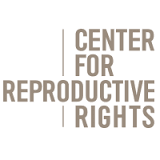African Union Commits To Ending Child, Early And Forced Marriage
06/19/2015–(PRESS RELEASE) African nations this week pledged to eradicate child and forced marriage in the region at the African Union Summit, according to African Union Goodwill Ambassador to End Child Marriage Nyaradzayi Gumbonzvanda.
Goodwill Ambassador Gumbonzvanda announced this political commitment to eradicate child, early and forced marriages at a panel event at the United Nations Human Rights Council in Geneva yesterday hosted by state delegations, UN agencies and NGOs including the African Union, the Center for Reproductive Rights, UNFPA, WHO and the governments of Sierra Leone, Italy, Belgium, and Uruguay.
In 2013, the U.N. Human Rights Council—principal body at the UN that promotes and protects human rights for all—adopted a procedural resolution dedicated to ending child marriage. The event this week called for the Human Rights Council to adopt a substantive resolution that recognizes the human rights implications of child, early and forced marriage, and encourage states to use their national and regional experience, to influence and promote the strongest possible inclusion of language addressing CEFM within a comprehensive human rights based approach
“The illegal and unconscionable practice of child and forced marriage has been ignored by too many governments for far too long, violating the human rights of countless young girls and women across the globe,” said Rebecca Brown, global advocacy director at the Center for Reproductive Rights. “Today’s action by the African Union echoes the many U.N. resolutions and regional initiatives developed to end child marriage, and it is an important and positive step toward change. It’s time governments fulfill their promises and take the necessary next steps to ensure these policies are implemented and enforced.”
During the panel event, Melissa Upreti, regional director for Asia at the Center, discussed how South Asia is making strides to end child marriage. Last year the government of Nepal hosted a convening on using the law to end child marriage, particularly focusing on the need for legal accountability for child marriage. Ms. Upreti also introduced the South Asia Initiative to End Violence against Children (SAIEVAC), which has led the development of a regional action plan to end child marriage that reflects the commitment of all eight South Asian states to take steps to end child marriage as a matter of human rights from 2015-2018.
In 2013 the Center issued the report Child Marriage in South Asia: Stop the Impunity examining the consequences of child marriage, which subject girls to serious crimes, including domestic violence and marital rape, placing their reproductive health and lives at serious risk. The report questions the failure of governments to prevent and prosecute cases of child marriage. Since the launch of the report, the Center has supported the efforts of SAIEVAC, in building a regional commitment to end child marriage and applauds the progress being made under the leadership of SAIEVAC to promote stronger legal accountability to end child marriage in the region.
The Center has played a part in some of the most important advances in reproductive rights worldwide. At the U.N. Committee on the Elimination of Discrimination against Women, the Center secured historic financial reparations for the family of a young Brazilian woman who died from preventable pregnancy complications—the first time an international human rights decision named maternal health a human rights. And at the European Court of Human Rights, the Center called upon Poland to ensure adolescents’ reproductive rights after access to a legal abortion for a rape survivor was repeatedly obstructed.
Center for Reproductive Rights
Stay with Sierra Express Media, for your trusted place in news!
© 2015, https:. All rights reserved.






